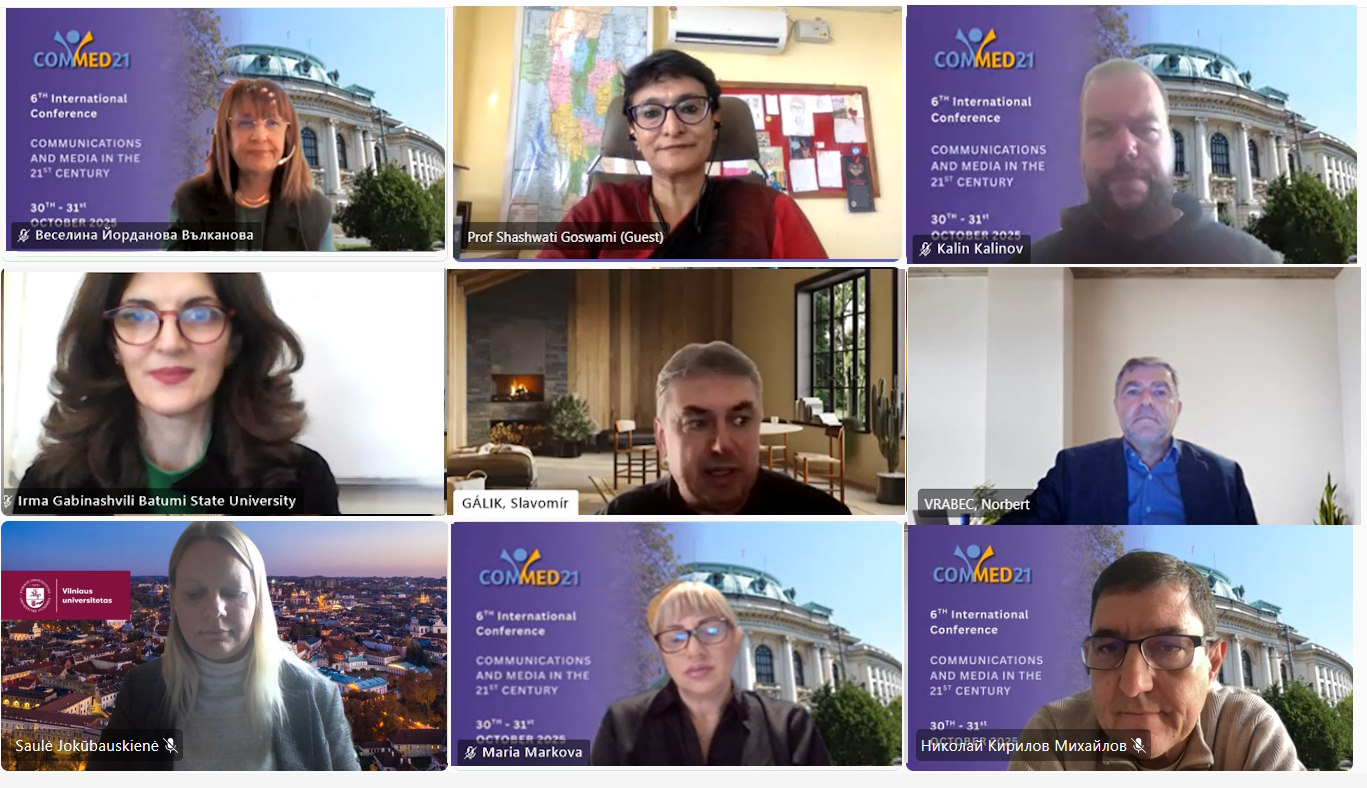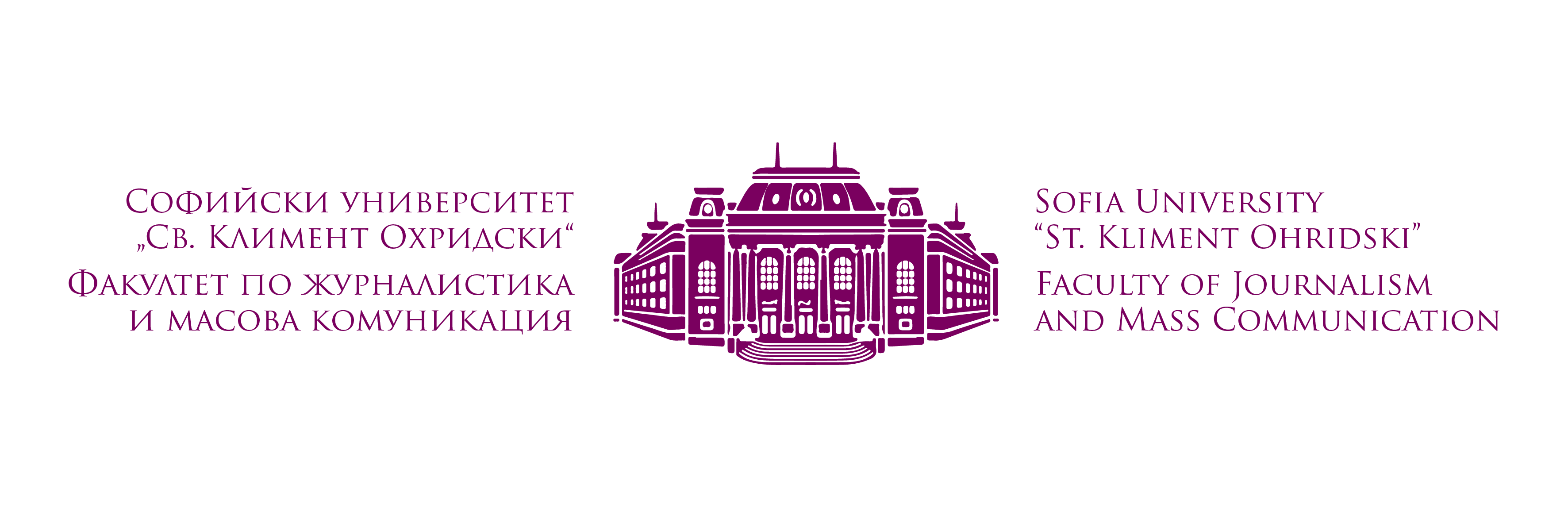The International Conference on Media and Communication Challenges in the Digital Environment, organized by the FJMC, has begun

For the sixth consecutive year, the Faculty of Journalism and Mass Communication at Sofia University "St. Kliment Ohridski" brought together scholars and researchers from different countries within the framework of the international forum series "Communication and Media in the 21st Century."
The current edition of the conference, "The Changing Media: Professional, Regulatory and Ethical Challenges Facing Media and Communications in a Digital Environment," is being held on October 30 and 31, 2025, online on the Microsoft Teams platform and brings together over 60 participants from seven countries: Bulgaria, Lithuania, Slovakia, Georgia, India, Poland, and Romania.
The reports cover a wide range of topics – from empirical research to conceptual analyses – which highlight both the urgency and the potential of contemporary media studies in an era of profound transformation.
The official opening was made by Prof. Dr. Veselina Valkanova, Dean of the Faculty of Journalism and Mass Communication, who, in her speech, emphasized the university's role as a space for critical thinking and ethical dialogue in the digital age. "A common thread connects all the research that will be presented here—the realization that technological change is never just technical. Automation is transforming work processes and business models; platforms are redistributing visibility and authority; new interfaces change the way citizens encounter claims of truth. These changes raise questions about ethics, accountability, and professional identity, questions that universities must address openly, critically, and responsibly," said Prof. Valkanova. She emphasized that the mission of the Faculty of Journalism and Mass Communication is to unite science and professional practice, to educate generations of specialists who defend the public interest and uphold the standards of public discourse.
She emphasized that the mission of the Faculty of Journalism and Mass Communication is to unite science and professional practice, to educate generations of specialists who defend the public interest and uphold the standards of public communication:
"The academic community of the Faculty of Journalism and Mass Communication has always believed that science and professional practice must go hand in hand. We are proud of our tradition in journalism, public relations, publishing, and communication management education, as well as of the generations of graduates who serve the public interest in Bulgaria and beyond. This tradition continues today through your presence and the scientific works you will present."
In her speech, Prof. Valkanova emphasized: "As part of the mega-processes of globalization and digitization of human activity and societies, of media ecosystems around the world, Bulgarian journalism is transforming itself in the context of complex processes of transition, dramatic changes in media policy, professional and discursive practices. In periods of transformation and crisis, journalism and the media as public institutions find themselves in risky situations of various kinds, threatening freedom of speech, professional standards, and ultimately pluralism and democracy."
The dean of the Faculty of Journalism and Mass Communication also emphasized that it is precisely in times of crisis that we see a growing need for quality journalism and journalism education, as well as the expansion of potential resilience to the negative impact of fake news and disinformation.
The academic partners of the sixth edition are Eastern University in Kentucky (USA), the Polytechnic Institute in Lisbon (Portugal), Vilnius University (Lithuania), Vitautas Magnus University (Lithuania), and the University of Bucharest (Romania).
The conference program includes a plenary session and seven thematic panels in Bulgarian and English, dedicated to current topics such as:
- artificial intelligence, algorithms, and hybrid media;
- digital infrastructures and audience practices;
- trust and influence in the media;
- political communication and democratic discourse;
- platforms, influencers, and moderation;
- journalism, culture, and democratic life.
During the forum, participants discussed the professional, regulatory, and ethical challenges facing media and communication in the digital environment. The first panel presented the results of an empirical study by the Center for Media Studies at the Faculty of Journalism and Mass Communication at Sofia University "St. Kliment Ohridski" entitled "Processes of Implementation, Influence, and Adaptation of Generative Artificial Intelligence in the Media."
The conference proceedings will be published in a bilingual peer-reviewed collection.
